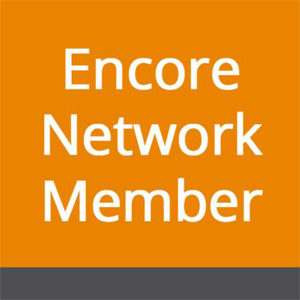 There’s been a lot of talk lately about being an authentic person.
There’s been a lot of talk lately about being an authentic person.
Psychologists Brian Goldman and Michael Kernis defined authenticity as “the unimpeded operation of one’s true or core self in one’s daily enterprise.”
His Holiness, the 14th Dalai Lama is quoted as saying that an authentic attitude of compassion doesn’t change, even when you are faced with another person’s negative behavior.
Poet and philosopher Kahlil Gibran wrote about authenticity in his 1918 book The Madman. He explores the “seeming self vs. the authentic self and the liberating madness of casting our masks aside.”
I decided to do a little research to discover what it means to be an authentic person. I read blogs on Huff Post, Psychology Today, Forbes, Tiny Buddha and a whole-host of others.
All of the articles I read stated that being an authentic person means that you have to be self-aware and accept yourself for your own strengths and weaknesses. You are accountable for your own thoughts and actions on a continuous basis. You act deliberately in ways that are consistent with your values. It means to always be true to yourself, be original, trustworthy and positive.
Former Major League baseball player Mike Robbins, the author of “Be Yourself, Everyone Else is Already Taken” states that to be authentic is to be genuine and real, liberating yourself from the pressure of always trying to be something else, even if it means feeling vulnerable. He states in his book that being genuine allows you to connect with others on a deeper level.
To be authentic takes determination, time and practice. This isn’t something you do for a day, week or month; it’s a life-time commitment that requires you to have the fortitude to see it through, facing your fears, seeing your strengths, accepting the challenges of acting in a consistent way and being accountable for your words and actions.
There is so much information on the web about how to become authentic. You can become confused as to whose advice is best. I say, they are all valid. From the philosopher and poet Kahlil Gibran to Dr. Wayne Dyer to the Dalai Lama, each of these noted thought leaders offer good advice. When it all comes down to it, the majority of them are stating the same information in different ways.
The question on most people’s mind is: what steps do you take to becoming an authentic person? Some websites on the web offer 15 steps, others detail 8, and still other sites list 3 steps. I don’t believe there are a set number of steps, but all of the thought leaders and articles seem to agree on the following:
1. Love yourself: People won’t love you if you don’t love yourself.
2. Don’t be so hard on yourself: You are good enough as you are because nobody’s perfect.
3. Love others: What you give comes back to you.
4. Be kind to others: You’re not better than anyone else.
5. Don’t judge people: You don’t know what’s going on in their lives.
6. Be flexible: Things aren’t always going to go the way you planned; you have to be willing to adjust to changes and challenges.
7. Do what you love: If you don’t do what you love, you’ll be miserable in what you do.
8. Take responsibility: Accept blame for your own words and actions.
9. Pay attention: When someone talks to you, really listen to what they say.
10. Be Empathetic: Try to understand them and what they’re feeling.
11. Be generous: Yes, it’s better to give than to receive.
12. Be positive: Being positive instead of negative takes weight off your shoulders and makes you happier. Positive thoughts and actions you send out to the world will come back to you.
13. Have faith: Trust that all would work out in the end.
Being authentic forms a connection to your encore journey. Striving to achieve authenticity allows you to have the freedom to be your true self. By being authentic in your encore journey, you build trusting relationships and can achieve meaningful connections.
Being authentic means consistently making the effort to look inside yourself and not ignore what makes you unique. By discovering your true talents, gifts and passions, you can live your life today better than you did yesterday.
 Deborah Black is a training and personal development mentor. She has trained office staff on a variety of topics, from customer service skills to creating an infographic resume to conflict resolution. For the last three years, Deborah has been a Life Reimagined® guide and coach, facilitating workshops in discovering your “what’s next” and “reimagining your life”. Deborah has also been a Certified SCORE mentor, providing information and support for emerging entrepreneurs. Currently, Deborah serves as a Board Member for Encore Tampa Bay.
Deborah Black is a training and personal development mentor. She has trained office staff on a variety of topics, from customer service skills to creating an infographic resume to conflict resolution. For the last three years, Deborah has been a Life Reimagined® guide and coach, facilitating workshops in discovering your “what’s next” and “reimagining your life”. Deborah has also been a Certified SCORE mentor, providing information and support for emerging entrepreneurs. Currently, Deborah serves as a Board Member for Encore Tampa Bay.

